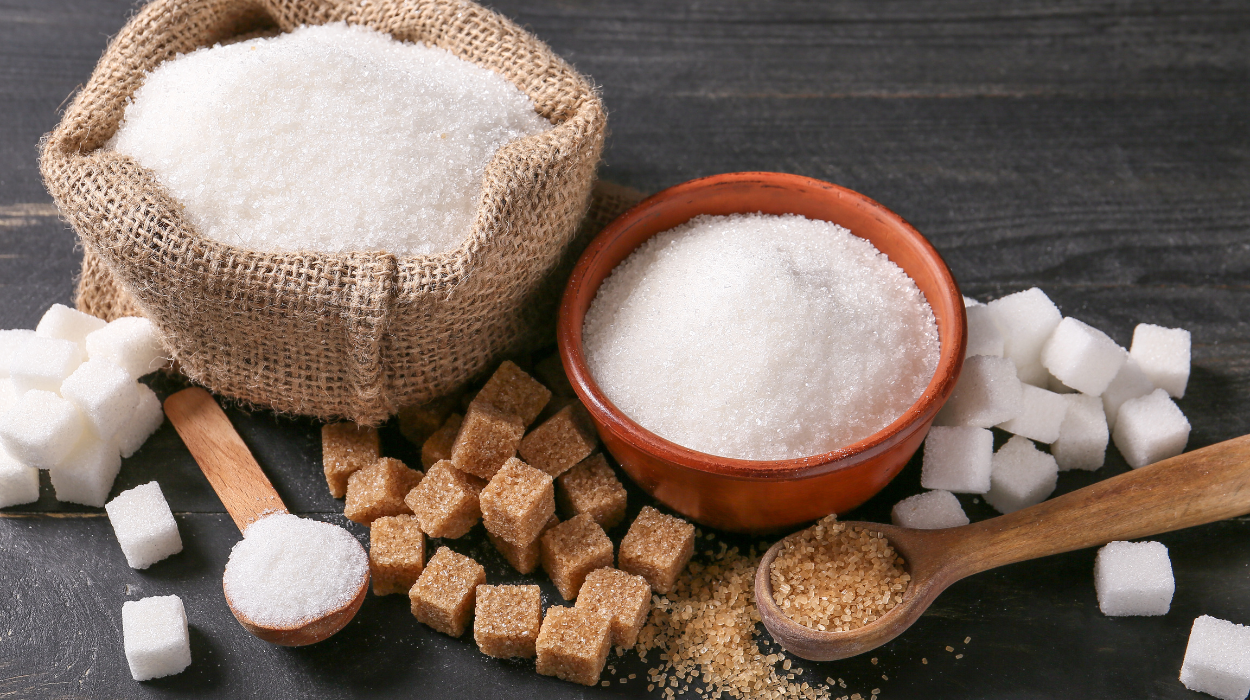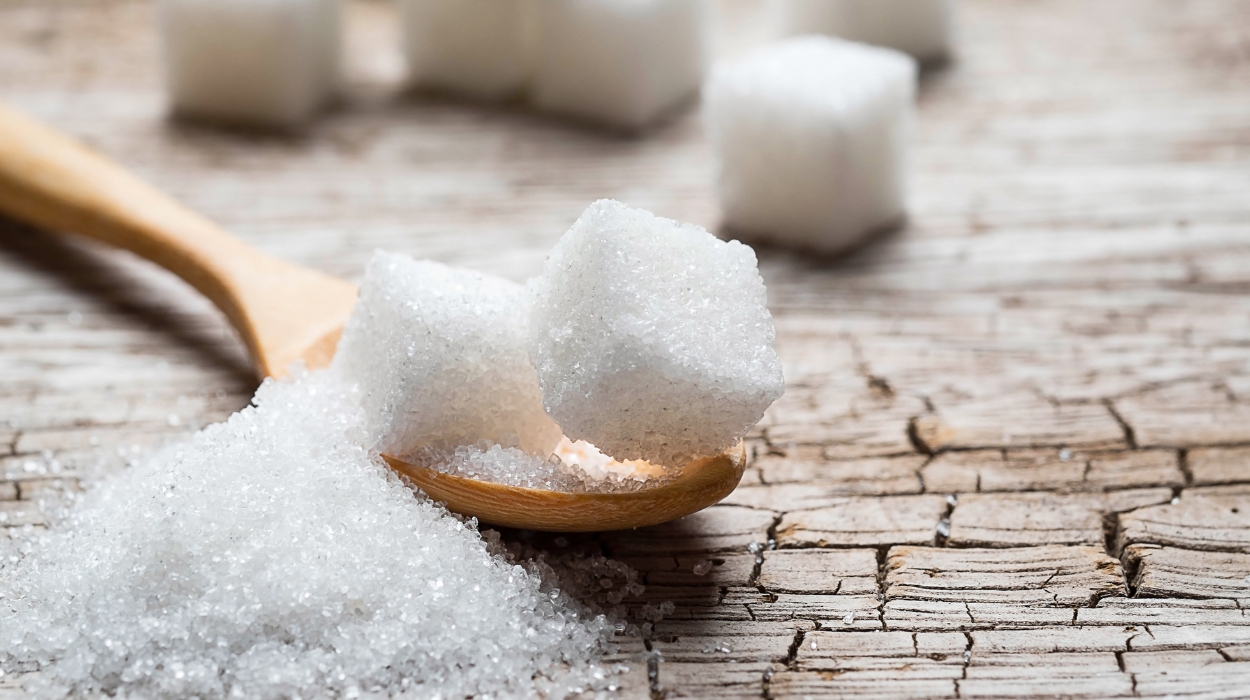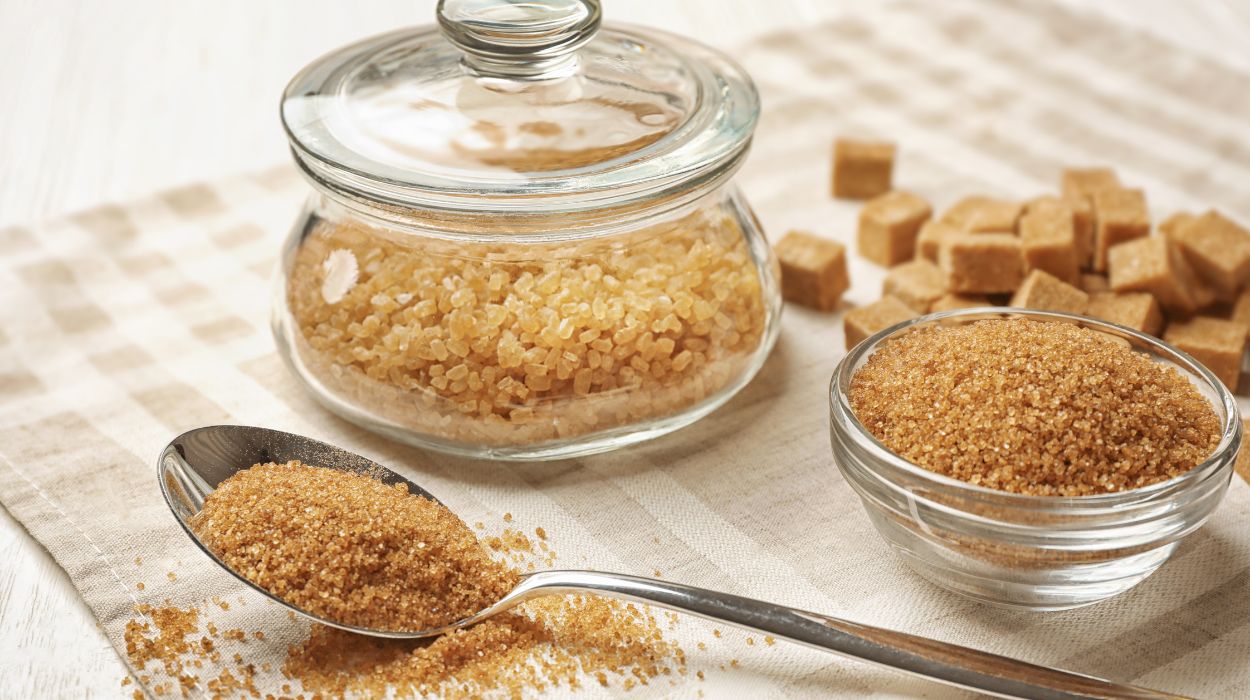 Evidence Based
Evidence Based
Evidence Based
This article is objectively based on relevant scientific literature, written by experienced medical writers, and fact-checked by a team of degreed medical experts.
Our team of registered dietitian nutritionists and licensed medical professionals seek to remain objective and unbiased while preserving the integrity of any scientific debate.
The articles contain evidence-based references from approved scientific sites. The numbers* in parentheses (*1,2,3) will take you to clickable links to our reputable sources.
Is Sugar Vegan? Sugar & The Vegan Diet In 2024

Public interest in a vegan diet‘s environmental, ethical, and health benefits has grown significantly in recent years. As a result, the global population of food for vegans has increased significantly. Vegans must pay close attention to the food labels to ensure they do not consume anything they should not. If you follow a vegan diet, you may wonder, is sugar vegan?
This article analyzes the role of sugar in a vegan diet, assessing its many forms to determine which are suitable for vegan consumption.
Is Sugar Vegan Friendly?
It depends; most sugar is generally unacceptable for vegans, depending on the type of sugar and the processing method used. Granulated white sugar, brown sugar, and powdered sugar are all commercially available sugars that may have been processed with animal-derived bone char, [1] which is used in the sugar-bleaching process.
These sugars come from plants, most often sugarcane and sugar beets.[2] Nonetheless, not every refined sugar is suitable for vegans.
Determining if sugar is vegan requires studying its history and processing methods. Coconut sugar, beet sugar, and organic sugar may be fine for vegans since they do not go through the refining process that includes bone char. Cane sugar, on the other hand, is not vegan-friendly. Beet sugar, conversely, does not get refined with bone char.[3]
To know if sugar is vegan-friendly, you need to look at the different varieties and how they’re made.
Can Vegans Eat Sugar?
Not all sugars are created equal when it comes to their vegan-friendliness. Some sugars are widely acknowledged as being vegan-friendly, while others may not be due to their manufacturing practices.
Vegans should be aware of the variations between various sugars and their potential consequences on their intended lifestyle when making dietary decisions.
What Is Sugar?

Sugar is a naturally occurring carbohydrate that can be used for both flavor and fuel. It’s a component of many fruits and veggies, but the most prevalent sources of table sugar are sugarcane and sugar beets.
When harvested, pure cane sugar juice is refined to remove impurities and water content, allowing sugar crystals to form. The refining procedures utilized for sugars can vary, resulting in a range of sugars potentially bleached with bone char.
Which Type Of Sugar Is Vegan?
Some of the commercially available sugar types are widely acknowledged as suitable for vegan diets. Sugars that fall under this category include organic sugar, beet sugar, coconut sugar, and unrefined sugars. Because of the low processing involved, these sugars rarely require animal ingredients.
Granulated White Sugar
Granulated white sugar, the most common form of sugar, can be used in various ways in the kitchen and in beverages. Because this type of sugar originates from sugar cane or sugar cane juice, its production more than likely involves bone char and is not suitable for vegans.
Brown Sugar

When white sugar is combined with molasses, it turns into brown sugar. Even though the production of some brown sugars may still require bone char in the refining process, many manufacturers now employ processes suitable for vegans. Look for a vegan certification.
Powdered Sugar
Granulated sugar, or confectioner’s sugar, is first ground into a fine powder and then combined with a small amount of cornstarch. Powdered sugar can also be used in baking. Consuming this sweetener is not for vegans.
Reasons Some Sugar Is Not Vegan
There are a few situations in which sugar may not be considered vegan.
Use Of Bone Char In The Refining Process
Certain sugars, particularly those that undergo a refining process that includes bone char, are unsuitable for vegans. Bone char is a color-removing filter generated by burning animal bones until they turn to ash at a high temperature.
Even though it is not utilized to create the final sugar product, vegans object to its use.
Use Of Shellac For Coating Confectionery Products
The confectioner’s glaze or shellac[4] is a covering created from the resinous secretions of the lac beetle. In the confectionery sugar industry, it is typically used as a coating or glaze.
Confectioner’s glaze is thus unsuitable for vegans due to the usage of animal secretions in its manufacturing.
Use Of Non-Vegan Refining Agents
Some sugar digestion procedures include using chemicals incompatible with vegan diets and lifestyles. For example, an activated charcoal filter may be used during refining, which is unsuitable for vegans. Charcoal filters used in sugar refinement may be made of bone char.
Even though the final sugar product does not include these chemicals, they are nonetheless a source of worry for vegans.
Use Of Non-Vegan Materials In Filtering Process
Some sugars are likely processed with ingredients that vegans cannot consume, although this is not the case for all of them. For example, brown sugars processed with bone char are no longer considered vegan. Unrefined brown sugar is vegan-friendly.
However, although this is the standard method, not all brown sugars go through this specific filtering process.
Lack Of Labeling Regulations
Vegans struggle to determine whether or not a specific sugar product is vegan due to relaxed labeling requirements.[5] Producers are not required in many locations to disclose if any animal ingredients are utilized in the refining process.
Because of the scarcity of information, it may be difficult for vegans to determine whether or not a particular sugar product is suitable for them to consume. Replace refined sugars with natural sugars[6] where possible to be on the safe side.
How To Tell If Sugar Is Vegan?
Due to the lack of standardized labeling and disclosure rules, it can be difficult to determine whether or not sugar is vegan-friendly. However, there are a few ways to check if sugar is an appropriate vegan food:
- Be on the watch for labels designed with vegans in mind. Some sugar manufacturers have recognized the necessity of providing this labeling type and have begun putting it on their products. When shopping, look for labels that say vegan or suitable for vegans. The labels allow consumers to verify that no animal byproducts were used to produce the sugar.
- Organic sugars are preferable to regular white sugar. They are less likely to have been chemically treated and hence more likely to be vegan. Due to organic production standards’ stricter limits on additives, vegans may be able to consume certified organic sugar.
- Select sugars that have not been refined. Unrefined sugars undergo less processing and are thus more likely to be appropriate for vegans. Because more molasses is retained, these sugars are closer to the sugars in their original form. Although most raw and unrefined sugars suit vegans, specific brands and manufacturers may not comply with vegan-friendly processing methods.
- If you cannot determine whether or not a sugar product contains animal components based on the label, you should contact the manufacturer. You can find out if a specific sugar refinery employs any animal-derived substances by contacting that facility and asking them directly.
- Research reputable vegan meal delivery services to learn everything you can. Sugar products should clearly state whether or not they are vegan, and businesses should be encouraged to be open about the processes they employ to create their products.
You may encourage businesses to adopt vegan-friendly practices by shopping at stores that share your values.
The Bottom Line
Sugar can be included in a vegan diet depending on how it is processed and what type of sugar it is. Sugar is generally considered vegan-friendly in unrefined or organic forms, but most sugars require the usage of substances derived from animals in their refining processes. The healthiest thing to do is to replace refined sugar with natural sugars.[6]
Vegans should always read labels, buy clearly labeled vegan goods, and stick to organic, unprocessed sugars to satisfy a sweet tooth. Producers who value transparency and vegan-friendly manufacturing methods can boost the availability of vegan sugar alternatives.
Frequently Asked Questions
Cane, brown, confectioner’s sugar, and confectioner’s glaze are examples of non-vegan sugars because they are made using animal and dairy ingredients.
Granulated white sugar is generally considered non-vegan.
Although sugar is used in beverages, it is not a drink. Vegans can enjoy drinks sweetened with sugar substitutes rather than sugar. Natural sweeteners like stevia extract or monk fruit are sometimes added to green powder to enhance the taste.
Sugar cane and sugar beets are the plants used to produce sugar in its purest form. Its refinement techniques, however, may compromise its vegan credentials. Beet sugar does not usually need bone char for processing and may be vegan-friendly.
Vegan sugar is any unrefined sugar[7] or natural sugar that does not contain any ingredients originating from animals.
As long as no animal products are used in its preparation, vegans can safely consume organic sugar.
Beet sugar, which comes from sugar beets, is usually suitable for vegans since it does not undergo the same refinement process.
Refined sugar can be used as an immediate energy source, but it lacks any nutritional value, and its use may increase the need for additional vitamins and minerals.
+ 6 sources
Health Canal avoids using tertiary references. We have strict sourcing guidelines and rely on peer-reviewed studies, academic researches from medical associations and institutions. To ensure the accuracy of articles in Health Canal, you can read more about the editorial process here
- Andrzej Benedykt Koltuniewicz (2010). Integrated Membrane Operations in Various Industrial Sectors. [online] ResearchGate. Available at: https://www.researchgate.net/publication/242343059_Integrated_Membrane_Operations_in_Various_Industrial_Sectors [Accessed 7 Sep. 2023].
- Ramesh Duraisamy, Ketemaw Salelgn and abiyu kerebo Berekute (2017). Production of Beet Sugar and Bio-ethanol from Sugar beet and it Bagasse: A Review. [online] ResearchGate. Available at: https://www.researchgate.net/publication/315462766_Production_of_Beet_Sugar_and_Bio-ethanol_from_Sugar_beet_and_it_Bagasse_A_Review?enrichId=rgreq-593379996c8f635a09138833b33dcf05-XXX&enrichSource=Y292ZXJQYWdlOzMxNTQ2Mjc2NjtBUzo0ODA0MjAyOTE3MTUwNzNAMTQ5MTU1MjUzMTY4MQ%3D%3D&el=1_x_2&_esc=publicationCoverPdf.
- Donovan, M. (2003). SUGAR | Refining of Sugarbeet and Sugarcane. Elsevier eBooks, [online] pp.5659–5665. doi:https://doi.org/10.1016/b0-12-227055-x/01163-9.
- Nandkishore Thombare, Kumar, S., Kumari, U., Priyanka Sakare, Yogi, R.K., Prasad, N. and Sharma, K.K. (2022). Shellac as a multifunctional biopolymer: A review on properties, applications and future potential. [online] 215, pp.203–223. doi:https://doi.org/10.1016/j.ijbiomac.2022.06.090.
- Murray, R., Bhatia, J., Okamoto, J., Allison, M., Ancona, R., Attisha, E., Cheryl De Pinto, Holmes, B., Kjolhede, C., Lerner, M., Minier, M., Weiss-Harrison, A., Young, T., Daniels, S.R., Abrams, S.A., Corkins, M.R., Sarah, Golden, N.H., Magge, S.N. and Sarah Jane Schwarzenberg (2015). Snacks, Sweetened Beverages, Added Sugars, and Schools. [online] 135(3), pp.575–583. doi:https://doi.org/10.1542/peds.2014-3902.
- Arshad, S., Rehman, T., Saif, S., Muhammad, Nawaz, A., Hassoun, A., Cropotova, J., Trif, M., Younas, A. and Rana Muhammad Aadil (2022). Replacement of refined sugar by natural sweeteners: focus on potential health benefits. Heliyon, [online] 8(9), pp.e10711–e10711. doi:https://doi.org/10.1016/j.heliyon.2022.e10711.



